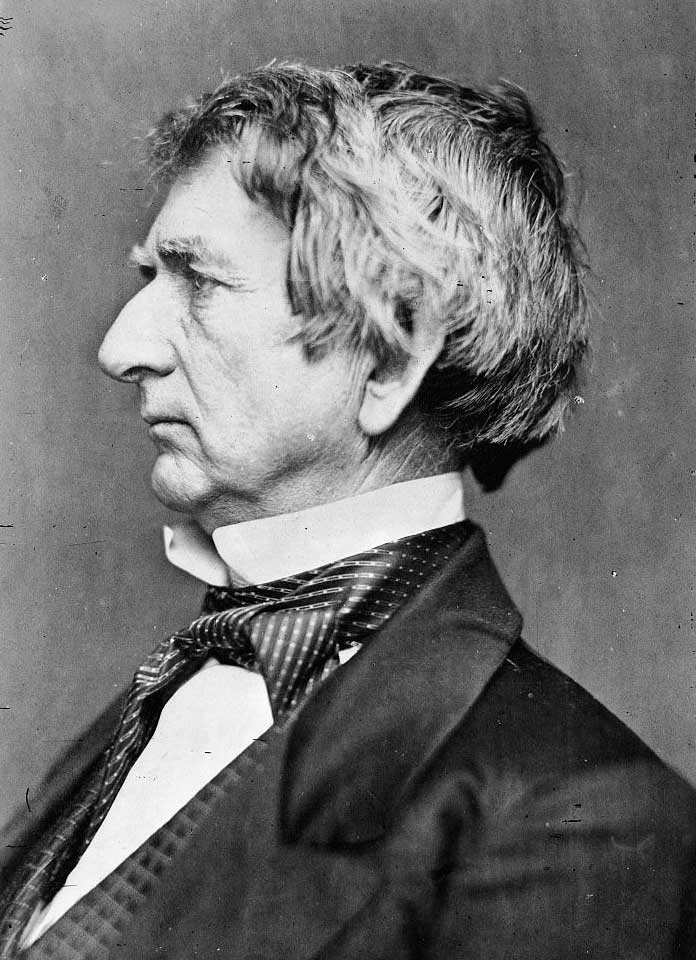William Henry Seward

William Henry Seward was born in Florida, New York, on May 16, 1801, to a Welsh and Irish family. He attended school locally, graduated from Union College in Schenectady in 1820 and was admitted to the bar at the age of 21. Seward began practicing law in Auburn, New York, and became interested in politics. Elected to the state Senate in 1830 as a Whig, he was eventually elected governor in 1838, and reelected in 1840. As a state politician, Seward worked to reform education; promoted internal improvements; support the idea of a national banking system and protect civil rights, including establishing jury trials for black or white fugitives. When he failed to reduce state spending during a depression, he lost much of his support, and left public life in 1842. Remaining active as a speaker on state and national issues, however, he was elected to the US Senate for two terms (1849-60). In Congress, he expressed his free-soil views, and opposed the expansion of slavery to Western territories. The political controversies that surrounded his views and statements, however, pressured him into supporting Stephen A. Douglas' popular sovereignty view. In 1860, he was one of the major contenders for the Republican Presidential nomination. Disappointed by his losing the election, he accepted Lincoln's offer of the post of Secretary of State. After trying to get involved in Presidential policy and military affairs, he helped avert a military confrontation with England following the Trent Affair. In 1862, he was accused of being responsible for a series of Union defeats, and nearly resigned over the issue. He remained, however, and was instrumental in keeping foreign nations from getting involved in the war. After the Civil War, Seward supported conciliation with the former Confederates. In 1867, he purchased Alaska from Russia for only $7.2 million, an act that was initially called "Seward's Folly." When important natural resources were later discovered in the territory, Seward's purchase proved to be a major boon for the nation. He left the State Department in March of 1869, and toured the world. Seward returned to his home in Auburn, New York, and died there, on October 10, 1872.
 >
>